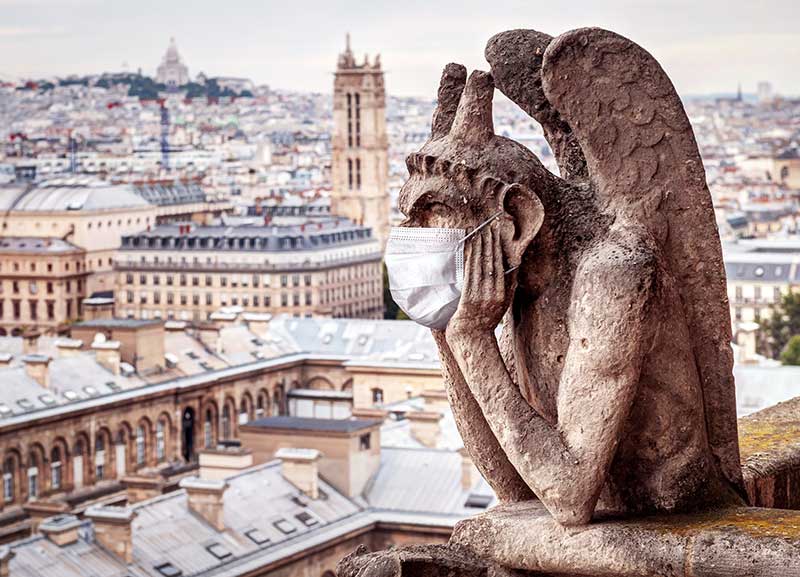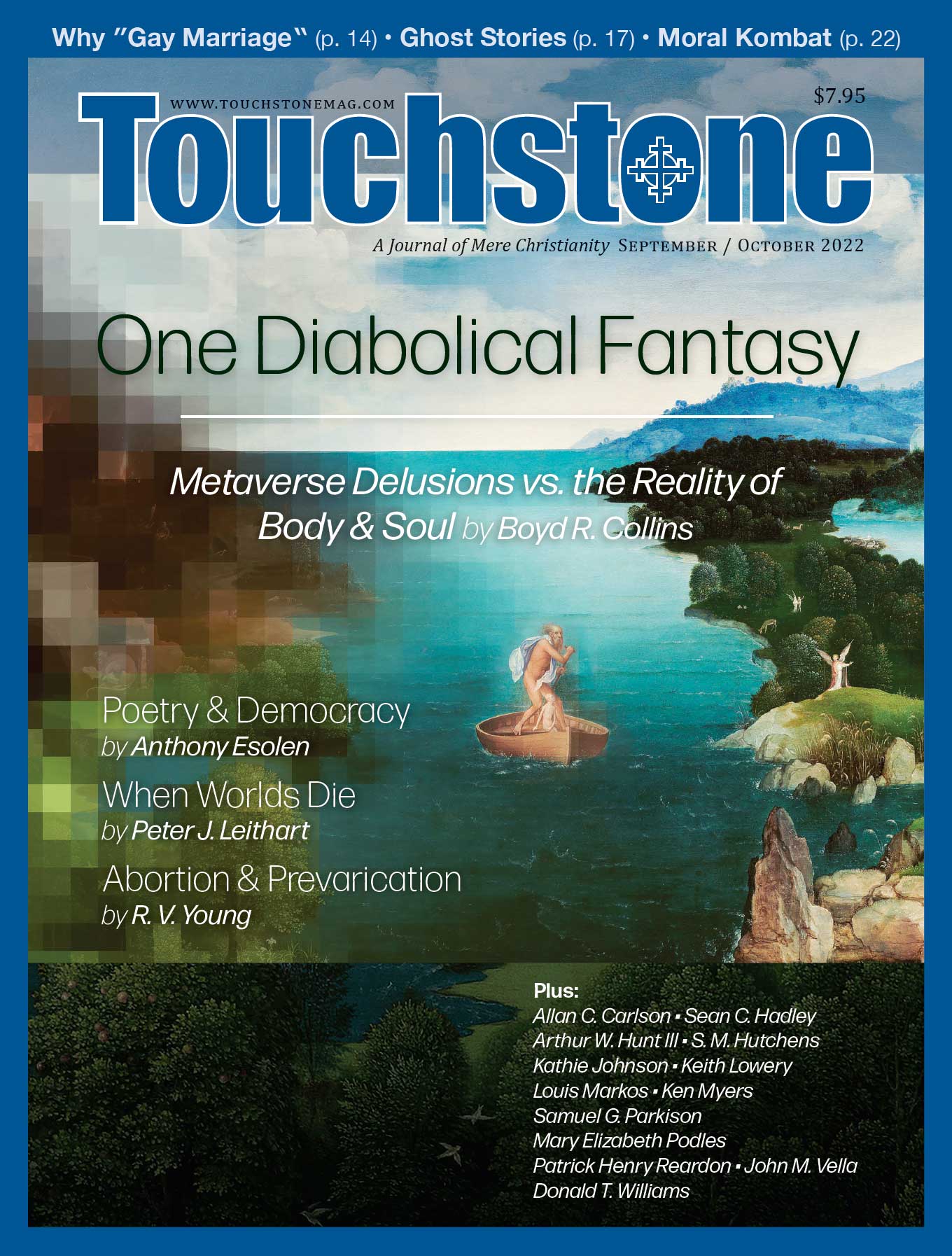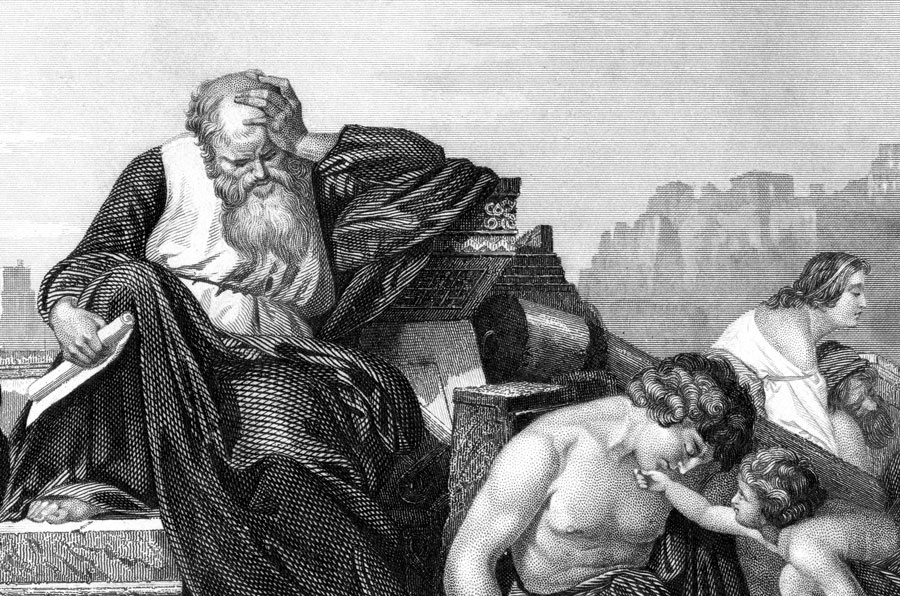Whence Wisdom?
Our Godless Narratives Are Pure Folly
The Covid pandemic has been, in a very real way, an apocalypse. I use the word apocalypse advisedly and not merely as a synonym for catastrophe. The Greek origin of the English word apocalypse means “to reveal, to uncover, to disclose.” Covid has been an unexpected revealing, a surprising uncovering of something that lay hidden.
Someone once said, “War doesn’t make heroes; it reveals them.” That’s a clever way of stating the truism that character precedes action. In other words, heroic actions reveal what was previously there, though as yet unseen. Covid has been similarly revealing of what lay hidden, though what has been revealed has not been, alas, particularly heroic.
Covid has shown us something unexpected about the fault lines in our society, to be sure. But it turns out that those fault lines existed even within our own more intimate social circles, not least within church communities. The tedious and predictable mainstream media typically assume that fault lines always fall neatly along left/right political boundaries. But that is not really how things have panned out with Covid.
Squandered Trust
One of the things that was surprising about Covid was the rapidity with which a thoroughgoing mythology appeared and immediately became entrenched. The entrenchment was helped along by ruthless enforcement at all levels of government, media, and business. The blitzkrieg of “right thinking” by almost all of those with their hands on the levers of power raised not only questions but alarms. Alas, Henry Adams’s memorable observation that “in all great emergencies . . . everyone is more or less wrong” was studiously ignored in the headlong rush to find solace in the speculations of “experts.”
Former New York Times columnist Bari Weiss has abandoned her earlier connection to mainstream media in preference for writing and publishing on Substack. She has also been publishing other writers there whom she deems as having something important to say. As it happens, these other writers include those whose thinking departs from the dominant Covid mythology. Recently Weiss published a piece that was at once enlightening and alarming. It was written by Jennifer Sey, a marketing executive and brand president at Levi’s who was forced out over her reaction to Covid policies (https://bariweiss.substack.com/p/yesterday-i-was-levis-brand-president).
In the post, Sey relates her story of advocating for children in the context of Covid, and how her advocacy eventually resulted in the loss of her job. What most interests me about her is that she is not a card-carrying member of those the media typically depict as the hairy unwashed. For one thing, she is not associated with the political right in any way. In practice, this means she is not a normal target for tarring by the media as an intellectual troglodyte. She is the very picture of the progressive left. Nevertheless, her unwillingness to embrace the government-sanctioned mythology regarding Covid, especially where her own children were concerned, combined with her determination to advocate for child safety, ended up costing her a lucrative job.
As Sey’s story illustrates, not everyone bought into the Covid mythology. The Covid fault lines revealed by the pandemic seem to reflect variations in how people react to complexity and to the widespread fear that often accompanies uncertainty. For some, the reaction has been to cling to the official storyline as a guide to the way forward. Some of those who clung to the rapidly formed Covid mythology have been surprisingly intolerant of those who did not—Sey being a recent victim.
Those who have taken an approach similar to Sey’s have been proactively attempting to unravel the complexity (and their own uncertainty) by examining the data for themselves. They are charting a course that reflects their own conclusions about the way forward. They have declined to outsource their personal judgment to the opinions of experts.
Many writers have remarked upon those who, like Sey, have lost faith in our institutions, and it seems likely that this loss of trust has contributed mightily to the skepticism of those who have come to view expert opinion with something of a gimlet eye. The watershed moment for losing trust in the healthcare bureaucracy may have been the BLM riots of 2020. At the very moment when the marching and burning and destruction caused by the rioters was being applauded by the healthcare bureaucracy, churches and schools and restaurants and small businesses of all kinds were being shut down. What this inescapably revealed to millions of people is that the healthcare bureaucracy has been busy concerning itself with things other than actual public health.
Keith Lowery works as a senior fellow at a major semiconductor manufacturer, where he does advanced software research. He worked in technology startups for over 20 years and for a while was a principal engineer at amazon.com. He currently serves as an elder at Lake Ridge Bible Church in a suburb of Dallas, Texas.
Share this article with non-subscribers:
https://www.touchstonemag.com/archives/article.php?id=35-05-037-f&readcode=10822
subscription options
Order
Print/Online Subscription

Get six issues (one year) of Touchstone PLUS full online access including pdf downloads for only $39.95. That's only $3.34 per month!
Order
Online Only
Subscription

Get a one-year full-access subscription to the Touchstone online archives for only $19.95. That's only $1.66 per month!
bulk subscriptions
Order Touchstone subscriptions in bulk and save $10 per sub! Each subscription includes 6 issues of Touchstone plus full online access to touchstonemag.com—including archives, videos, and pdf downloads of recent issues for only $29.95 each! Great for churches or study groups.
Transactions will be processed on a secure server.
more on culture from the online archives
more from the online archives
calling all readers
Please Donate
"There are magazines worth reading but few worth saving . . . Touchstone is just such a magazine."
—Alice von Hildebrand
"Here we do not concede one square millimeter of territory to falsehood, folly, contemporary sentimentality, or fashion. We speak the truth, and let God be our judge. . . . Touchstone is the one committedly Christian conservative journal."
—Anthony Esolen, Touchstone senior editor














